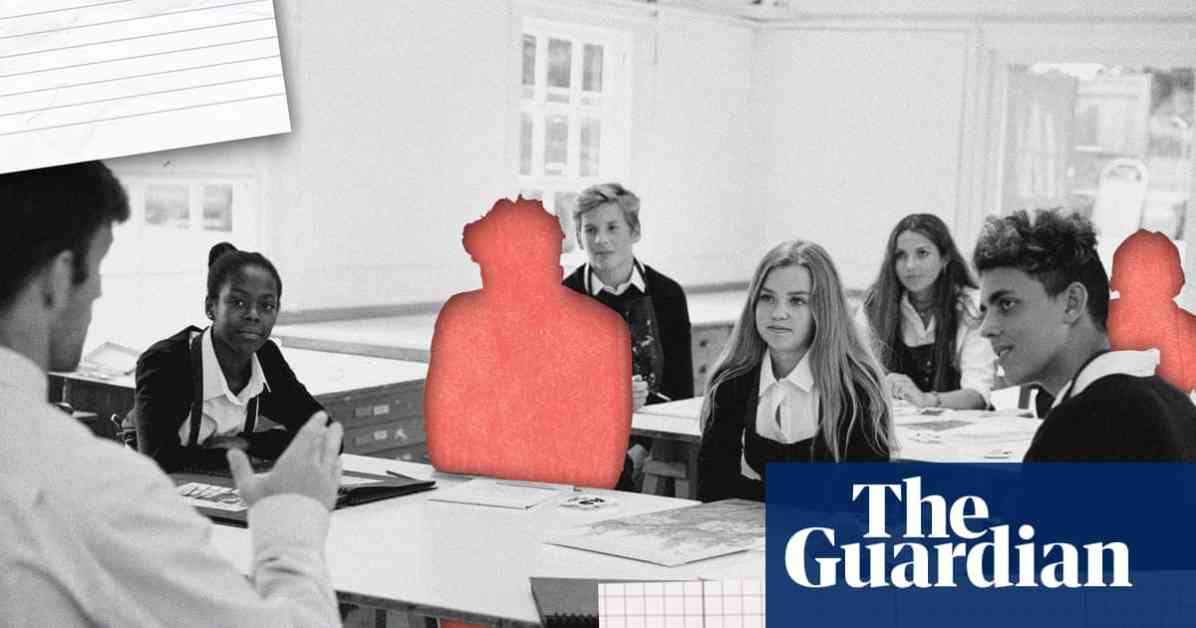Impact of COVID-19: Secondary Schools in the UK Struggle with Rising Suspension Rates
The COVID-19 pandemic has brought about unprecedented challenges for schools across the UK, with secondary schools in England facing a sharp increase in the number of students being suspended. According to analysis by the Guardian, over 25% of students were suspended in fifty secondary schools after the pandemic, highlighting the significant impact the crisis has had on student behavior and well-being.
Rising Suspension Rates in Disadvantaged Schools
One of the most concerning findings of the analysis is the disparity in suspension rates between schools with disadvantaged pupils and those in wealthier areas. Children at schools with the most disadvantaged pupils were found to be three times as likely to be suspended as those in wealthier areas. This highlights the deep-rooted issues of inequality and social deprivation that have been exacerbated by the pandemic.
The proportion of schools suspending large numbers of pupils has risen sharply since schools were closed to many children during Covid, and teachers have struggled with deteriorating behavior since they reopened. The number of secondary schools that sent away a quarter or more of their pupils rose to 50 in 2022-23, double the 24 that did so in 2018-19, according to data published by the Department for Education (DfE).
The Impact on Students and Schools
The consequences of high suspension rates go beyond the individual students who are affected. Suspensions can disrupt the learning environment for all students, leading to increased stress and anxiety among the school community. This can have a detrimental impact on academic performance and overall well-being.
Luke Sparkes, the chief executive of Dixons Academies Trust, emphasized the challenges faced by schools in disadvantaged communities. He stated, “When we arrive in these schools, they are very often characterized by bad behavior – bullying, behavior that puts other children and staff in danger, and constant disruption of lessons which means children who want to learn are stopped from doing well.”
It is clear that schools in deprived areas are facing unique challenges that require targeted support and resources to address. The impact of the pandemic has further exacerbated existing issues, making it essential for schools to have the necessary tools and strategies in place to support their students effectively.
Efforts to Address Behavior Issues
Despite the concerning rise in suspension rates, schools and trusts are working hard to support their students and create a positive learning environment. Lee Wilson, the chief executive of OGAT, highlighted the transformation that schools in high-deprivation areas have undergone. He stated, “These schools have been transformed by OGAT. They now provide students with a great education and the best chance to lead successful lives.”
It is clear that schools are committed to providing a supportive and nurturing environment for their students, even in the face of significant challenges. Trusts like OGAT are working tirelessly to ensure that all students have access to the resources and support they need to succeed.
The Role of the Department for Education
The Department for Education (DfE) plays a crucial role in supporting schools and addressing behavior issues. The DfE’s national figures for 2022-23 showed a record 257,000 students were sent away for at least part of the school day after receiving one of the 787,000 suspensions issued during the school year. The DfE stated that there will always be a need for suspensions as a last resort, and they back headteachers to make those decisions while working to tackle the root causes of poor behavior.
It is essential for the DfE to continue to provide guidance and support to schools as they navigate the challenges brought about by the pandemic. By working in partnership with schools and trusts, the DfE can help to create a more positive and inclusive learning environment for all students.
Addressing Inequality in Education
The analysis also revealed a stark disparity in suspension rates between schools serving the most deprived communities and those in more affluent areas. In 2022-23, secondary schools in the top fifth in terms of children on free school meals suspended 11.5% of pupils at least once, compared with 3.4% of pupils at schools with the fewest children on free meals.
This highlights the urgent need to address inequality in education and ensure that all students have access to the support and resources they need to succeed. By targeting resources to schools in deprived areas and implementing strategies to support vulnerable students, we can work towards creating a more equitable education system for all.
Expert Insights on Behavior Management
Tom Bennett, an expert on pupil behavior who advises the DfE, emphasized the complex nature of behavior management in schools. He stated, “Suspending might actually be the right thing to do. What are the school outcomes? Are kids doing well? Maybe the suspensions keep them safe. Suspensions are not a good or bad thing intrinsically, they are a strategy.”
It is important to recognize that behavior management is a nuanced and multifaceted issue that requires a comprehensive approach. By considering the individual needs and circumstances of each student, schools can develop effective strategies to support their well-being and academic success.
Looking Ahead: Building a Supportive Learning Environment
As schools continue to navigate the challenges brought about by the pandemic, it is essential for stakeholders to work together to create a supportive and inclusive learning environment for all students. By addressing the root causes of poor behavior, providing targeted support to vulnerable students, and fostering a positive school culture, we can help to ensure that all students have the opportunity to thrive.
In conclusion, the impact of COVID-19 on suspension rates in UK secondary schools highlights the need for targeted support and resources to address behavior issues. By working collaboratively and implementing effective strategies, schools can create a safe and nurturing environment where all students can succeed.

